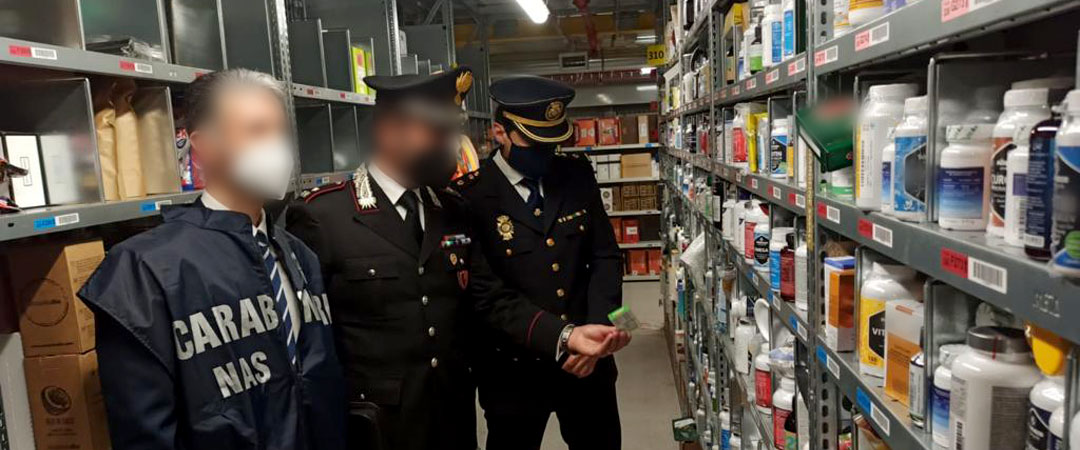Despite constraints imposed by the COVID-19, the 2020 edition of the Pandora operation targeting the illicit trafficking of cultural goods has been the most successful to date with over 56 400 cultural goods seized. These objects include archaeological objects, furniture, coins, paintings, musical instruments and sculptures.
Running between 1 June and 31 October 2020, Pandora V saw the involvement of customs and law enforcement authorities from 31 countries.
During the operational phase, tens of thousands of checks and controls were carried out in various airports, ports, border crossing points, as well as in the auction houses, museums and private houses. As a result, more than 300 investigations were opened, and 67 individuals arrested.
Given the global nature of this crime, operation coordination units working 24/7 were established by Europol on one side, and the World Customs Organization and INTERPOL on the other, to support the exchange of information as well as disseminate alerts, warnings and perform cross- checks in different international and national databases.
This operation was led by the Spanish Civil Guard (Guardia Civil), with the international coordination supported by Europol, INTERPOL and the WCO. PANDORA V was carried out in the framework of the European Multidisciplinary Platform Against Criminal Threats (EMPACT).
Operational highlights
- A total of 27 300 archaeological artefacts were seized as a result of a single investigation carried out by French Customs (Douane). A suspect was arrested, who now faces a prison sentence and a fine of several hundred thousands of euros.
- The Spanish authorities seized more than 7 700 cultural goods including archaeological artefacts, coins, sculptures and statues, weapons, paintings and archives of sound, film and photography with a value in excess of €9 million.
- During the operational phase, the Spanish Civil Guard (Guardia Civil) also finalised a complex investigation initiated within the framework of Pandora III. As a result, one individual was arrested and 94 objects stolen in various places of worship were recovered. A total of €165 000 in cash was seized at his home. The arrestee is suspected of trying to sell online these stolen goods, such as a 16th century silver chalice and an illuminated manuscript of the Apocalypse by Beatus of Liébana.
- During searches on the internet, the Swedish Police (Polisen) identified a folk art item stolen in Sweden in 2019. At that same online auction, the Swedish Police discovered a pair of 17th century candlesticks stolen from a Swedish church 8 years ago.
- The Italian Carabinieri Corps (Arma dei Carabinieri) reported more than 2 700 cultural goods seized including ceramics, archaeological goods, art and books valued at €1 155 000.
- The Hellenic Police (Ελληνική Αστυνομία) carried out 34 arrests and recovered a total of 6 757 antiquities, including ceramic and marble objects, as well as 6 452 coins, 5 533 of which were recovered in one single investigation. In one case, two Greek nationals were arrested for trying to sell 6 marble and clay antiquities for €150 000.
- A total of 50 metal detectors were seized, and 6 of them were seized directly in archaeological sites, clearly demonstrating that such sites are under treat.
- Several hundreds of Word War II grenades and other explosive devices were seized by the Police Force of the Slovak Republic (Policajný zbor Slovenskej republiky). This is a worrisome development as some of these old explosive devices are still functional and may lead to numerous casualties.
Results of the Cyber Patrol
Within the framework of the Operation Pandora V, the Dutch National Police (Politie) organised a five-day cyber patrol week focusing on online markets. Law enforcement from 15 countries, with the support of Europol, INTERPOL and WCO, identified suspicious sales online, as a result of which 15 new investigations were opened.
International coordination
Europol, as co-leader of this action, played a key role in implementing the entire operation by facilitating information exchange, and providing analytical and operational support. The WCO also facilitated intelligence exchange among different agencies through a special user group created on its CENComm communication platform.
INTERPOL connected Balkan and European participating countries, facilitating the exchange of information through its secure communications system. A dedicated expert supported the entire operation by double checking searches against INTERPOL’s Stolen Works of Art database to locate and identify stolen and missing items.
Participating countries: Albania, Austria, Belarus, Belgium, Bosnia and Herzegovina, Bulgaria, Croatia, Cyprus, Czechia, Denmark, France, Germany, Greece, Ireland, Italy, Latvia, Luxemburg, Malta, the Netherlands, North Macedonia, Montenegro, Poland, Portugal, Romania, Serbia, Slovakia, Slovenia, Spain, Sweden, Turkey and the United Kingdom
In 2010 the European Union set up a
four-year Policy Cycle to ensure greater continuity in the fight against serious international and organised crime. In 2017 the Council of the EU decided to continue the EU Policy Cycle for the 2018 – 2021 period. It aims to tackle the most significant threats posed by organised and serious international crime to the EU. This is achieved by improving and strengthening cooperation between the relevant services of EU Member States, institutions and agencies, as well as non-EU countries and organisations, including the private sector where relevant.
Organised property crime is one of the priorities for the Policy Cycle.


